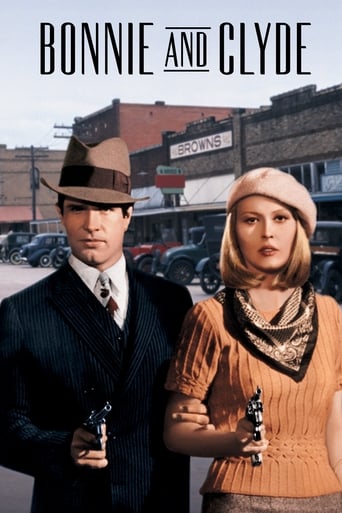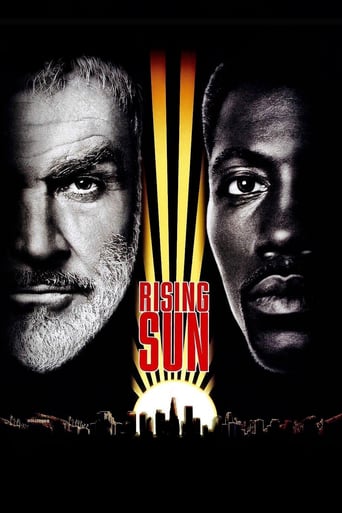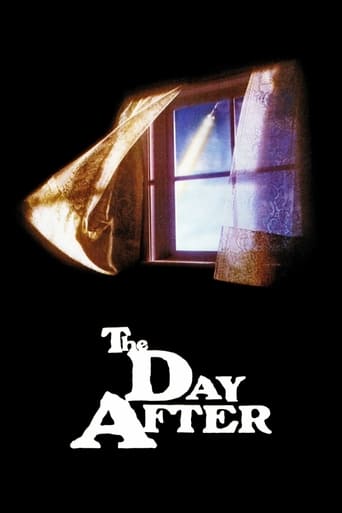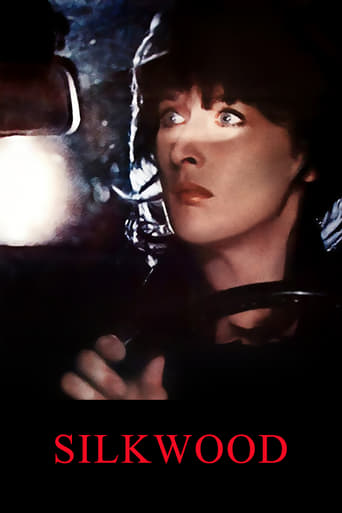
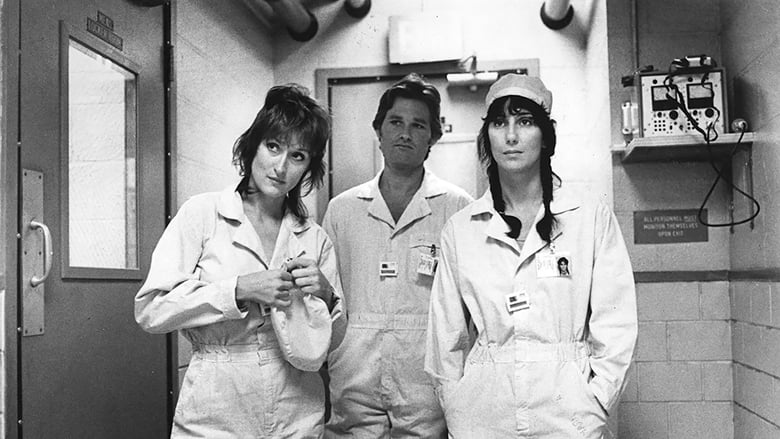
Silkwood (1983)
The story of Karen Silkwood, a metallurgy worker at a plutonium processing plant who was purposefully contaminated, psychologically tortured and possibly murdered to prevent her from exposing blatant worker safety violations at the plant.
Watch Trailer
Cast
Similar titles
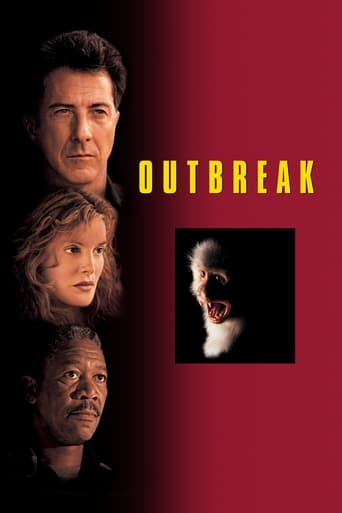
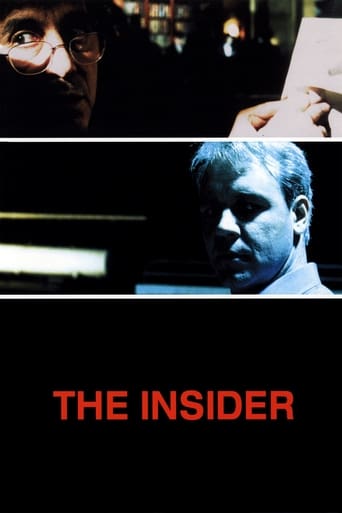

Reviews
Very disappointing...
To me, this movie is perfection.
Captivating movie !
When a movie has you begging for it to end not even half way through it's pure crap. We've all seen this movie and this characters millions of times, nothing new in it. Don't waste your time.
I might as well start off by stating that I litter and don't recycle and use pesticides and do everything I can to cause pollution, I like pollution. But I've always loved this movie, not from an environmental aspect but because it shows the life of average, working class people and instead of trying to make it glamorous, it keeps it true. I love the acting, and I'm not a big fan of the bluegrass but the solo of Meryl Streep singing Amazing Grace was stunning at the end as it showed Karen's death scene.Karen Silkwood is a metallurgy worker, refining plutonium in a large chemical factory in Oklahoma with her friends (many of her friends are employed by the factory). The only one she doesn't get along with is Winston, the known creep who is always trying to get it on with the female workers. She shares a small house with her boyfriend Drew and a lesbian woman named Dolly, both of whom are her best friends; they even go with her when she drives out to the oil fields of Texas to see her estranged kids.One day Karen begins to pull together her memories of disturbing sightings at the plant, such as a radioactive truck being cut up with welding tools to be buried, and her friend Velma being hosed and scrubbed down naked after being contaminated. Karen soon finds herself involved in some serious activism and dangerous work, and just as she is about to blow the whistle she is killed. No one knows if it was an accident or a murder.Silkwood was based on a true story, a cold case that happened in 1983, forcing the shut-down of the sketchy factory. The movie accurately depicts the events and inspired several scenes in the Sysco book series as well as an episode of Cold Case titled Breaking News.
Karen Silkwood, casually chewing gum, finishes her working day by a routine cleaning task. She then leaves the room, raises her hand toward the radiation detector, as she always does, but this time, the strident alarm suddenly starts ringing, indicating that she may have been exposed to radiations. Karen tries not to panic although she's visibly shocked. And the scene cuts to the first of her three "cooking" treatments, which in nuclear jargon, means getting into a hot, long and painful decontaminating shower. That very moment is Karen Silkwood's story in microcosm, perfectly reflecting who she was and what she went through. Basically, Karen can't see the danger pending above her frail shoulders. She's not a fool but in a tragically admirable way, she is just blinded by her own integrity. Later in the film, she just enters the door, and the sound startles us again, we have a quick glimpse on the "Danger Radiation" signal, then it cuts to her cries of fear and disbelief under the hot shower, again. The sad irony is that Karen tried to apply some cleansing on the field of ethics, in the Nuclear factory she worked in, but the more she tried, the more tortured she was by the 'invisible enemy'. And the frequency of the shower scenes plays like the omen of a series of misfortunes leading up to a tragic conclusion, the ultimate 'cleaning'. Indeed, we all know that Karen Silkwood died in a mysterious car accident, so the shower scenes, each time more intense and haunting, marks the beginning of the end for Karen Silkwood. But as aware as we are about the facts, there's something in Karen's portrayal by Meryl Streep and in Mike Nichols' sober directing that don't get us prepared to it. Karen is no more idealistic than any other, she lives her life, she jokes and smokes, a lot as a matter of fact, she enjoys flirting, teasing her friends, she's like any small-town girl of her generation. "Silkwood" borrows many elements from 70's dramas like "Serpico", "Norma Rae" or "The China Syndrome", movies featuring ordinary persons, so dedicated to their job they couldn't close their eyes on some unethical practices and made outcasts of themselves by blowing the whistle.Karen belongs to America's struggling, unorganized working class. Her three children live with her ex-husband, and she shares a ramshackle house with her boyfriend Drew and lesbian friend Dolly, superbly played by Kurt Russell and Cher. As to emphasize the fact that the factory nourishes the town, they also happen to be co-workers. Indeed, whether a cotton mill or corporate police, the factory producing plutonium fuel rods for nuclear reactors, is only the setting and the film deals with a sincere austerity a slice of American workers' ordinary lives in a crisis-stricken America, with a more dramatic turn since it's a life-and-death situation, governed by pure profits' motives. When the plant falls into an important contract and workers are forced to work over hours and falsify some records, the effect on their health is perceived as minor collateral damage, a chance even workers are ready to take, because at least, their wages is a valuable certitude. "Silkwood" chronicles Karen's double evolution: her ascension from a worker to a union activist, traveling to Washington, interacting with union officials, testifying before the Energy Atomic Commission and revealing that some records are altered. And in the same time, there's a descent into the outcast status, making her more and more undesirable, but in the meantime, more and more determined to conduct the investigation on her own. Karen died the night she was supposed to give documentation to New York Times reporter but none of it was found in her crushed car, except convenient hints indicating that she was drugged and 'fall in sleep" while driving. From all the previous heroes I mentioned, Silkwood is the most tragic character because she paid the highest price. And what makes the story so heart-breaking is that it's not until it's too late, that she realizes she's been sailing on trouble waters. I'm still haunted by the last shot of Karen blinded by headlights on her rear view mirror. Is she worried, surprised? or does she literally see the light, realizing where her fight has lead up and is probably aware of what's awaiting her? We're only left with our sorrow, sadness and disbelief shared by her co-workers and friends when the crushed car is dragged to town. And it's the bold and abrupt realism that emotionally enhances the film, it's set in 1974, but the feeling is so authentic I felt like it was made in 1974.Nichols' doesn't stylize the film, shot like a documentary. The big corporations aren't vilified as Karen isn't romanticized either. The only time the 'David vs. Goliath' aspect of her fight is hinted is when she looks for retouched negatives of faulty fuel rods and is confronted by Craig T. Nelson. She tells him she's looking for her pills, but the intimidating towering presence of Nelson accentuates Karen's vulnerability and provides the first hints of danger.Realistic dramas like "Silkwood" can only rely on performances and Meryl Streep dilutes herself as Karen Silkwood. She wasn't thirty in "Kramer vs. Kramer" but she conveyed a classy maturity, she's older in "Silkwood" but she looks like a 28-year old woman with that mixture of tenderness and carelessness, and so deeply rooted altruism. I didn't know Meryl Streep could look so adorable, so childish, being sometimes naughty, yet revealing a stronger side than anyone, something she didn't knew she had. That's the stuff heroes are made on and I was sad to see that Karen Silkwood was only listed as 47 on AFI's Top 50 Heroes, so far below Norma Rae (#17) and Erin Brokovich (#31), especially since the reason why I loved "Silkwood" is precisely why I didn't like "Erin Brokovich".
If you like movies about criminal conspiracies by large companies like the oil industry etc. and if you are not hoping for baam boom bang action, and if you respect the release date of this movie, you shouldn't be disappointed watching it.We got different actors here that have a pretty good career ahead of them and I'm not just talking about Cher (who already was pretty famous at that time) but also Craig T Nelson who started his cinema career about that time, also did Fred Ward and with Ron Silver, the same thing. Not to speak of Kurt Russell and Meryl Streep.So what we've got here is a biographical movie and it is about a conspiracy making one person the victim of something she might haven't done. She's put under pressure and we see how she's dealing with that.The movie is made really good and its worth watching it but the real criticism fails. There is no real political statement in the whole conclusion so please don't expect that, rather expect a nice flick. If you are looking for really critical hot stuff that must have changed things and opinions of people at that time like the "China Syndrome" with Michael Douglas, you are absolutely wrong here.I'm giving it a 5 out of 10 because, positive: I liked the actors and the atmosphere. Negative: the plot builds up to something that doesn't come out, even if it's biographical, this was pretty weak and i don't mean the person, i mean the movie.
"Silkwood" is not a paranoia/expose thriller like "The China Syndrome", as I had expected. Although those elements are present "Silkwood" moves in other directions. It's a wonderful movie, a rich, vivid, detailed, heartfelt portrait of a woman, activist Karen Silkwood, and her world. Because of the wide scope of the film and Meryl Streep's portrayal of Silkwood I'll temper my description of her as simply "activist" and add: Woman. Worker. Housewife. Friend. Lover. Fighter. More words will come to me. The film's portrayals of the myriad of people in Karen Silkwood's personal and working lives, are acute and incisive, and its evocation of a time and place, 1970's Oklahoma and Texas, is a tapestry of many colours, a sympathetic but non-glamorization of working class lives, a penetrating look at the ups and downs of love, plus a panoramic view of an arid landscape fouled by heavy industry as far as the eye can see.It's wonderful to see a film that delves so deeply into the lives and personae of its characters. They don't behave the way we expect or even want them to. Silkwood works at a plant which handles plutonium and where white collar management is breaking the law and exposing its blue collar workers to dangerous levels of radiation. The villains are flesh-and-blood people who, themselves, are acting as they do because of real pressures and are the purveyors of established corporate survival instincts. The end justifies the means. Even many of Silkwood's co-workers are against her, fearing for their livelihood. This is not an environment where the workers possess many bargaining chips, and the company holds the trump card - it can pick up and move elsewhere. The film's depiction of the affair between Silkwood and her lover, Drew (Kurt Russell), is special, indeed. The deep well of love they have for each other starts to deteriorate as Silkwood morphs into a self-actualized human being moving into a wider world. The relationship she has with Dolly (Cher), a gay woman sharing her home, is touching and quite lovely.As I write this review political discourse is becoming increasingly antagonistic and the political mood is lurching to the right. Public unions are in danger and people are encouraged to respond to bogus threats and think in opposition to their own self-interest. Isn't this, essentially, what "Silkwood" is about? The pervasive climate of fear? "Silkwood" is not about heroines but about human beings caught in an untenable situation over which they have no control and few resources at their disposal. With the end result in doubt and her safety in jeopardy Silkwood does not leap over tall buildings, but she does the best that a human being can do. That's where the film achieves its profundity. It's the best kind of film, one which deals, in a meaningful way, with the human experience.



